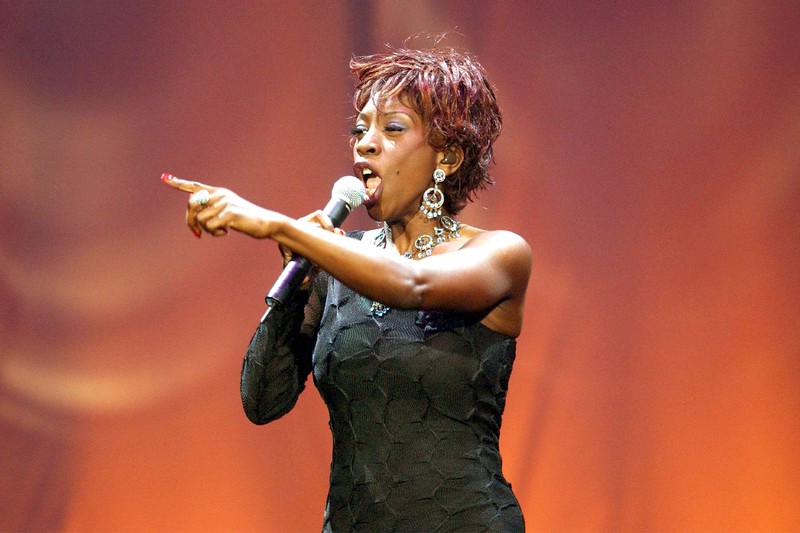
Chapters In My Life: Heather Small
Chapter One: Growing Up On A London Council Estate
“I was born in London to parents who had come to the UK in the early 60s from Barbados. I grew up on a council estate and went to a local state school. I was a good student, but the racism at my all-girls school was awful. In some ways, it really stunted your growth, though many of us went on to achieve – but it was in spite of school rather than because of it. That’s so sad to think about. There was a serious lack of investment from the teachers in your future, and it was up to you to go out there and find out who you were. I didn’t really sing at all when I was young – I was quite shy, and I didn’t even tell my mother or my sister (to whom I’m very close) that I loved singing. I didn’t even tell them when I went for my first audition at 18. There weren’t many people in my immediate vicinity who’d gone on to make it in the music business, so it was hard to tell anyone it was my dream. I remember telling the school careers councillor and she just laughed.”
Chapter Two: Joining My First Group Hot House
“When I was 18 and still in the sixth form, I replied to an ad in the now defunct Melody Maker. My friends always teased me I would never have the guts to go through with it, but I dragged them along to the audition with me. Two very middle-class white guys (Mark Pringle and Martin Colyer) were looking for a singer who liked Aretha Franklin and Gladys Knight. Anyone who’s into soul music will say they like Aretha Franklin, but I loved Gladys Knight, so the fact they’d put her name in the mix really appealed to me. At the audition, they asked me to sing one of their songs. They called me the next day to say they’d loved the sound of my voice and that they wanted me to join the band. That was it – the start of my career.”
Chapter Three: Getting My First Record Deal – And Getting Dropped
“After Hot House signed with a publisher and management, we got our first official record deal when I was 21. It felt like the world was my oyster. But I was dropped from the band by the time I was 23 or 24. I worried that I’d blown my chance, but my management team had another band – M People – on their books who really liked my voice. They encouraged me to record a demo – the two songs were ‘Colour My Life’ and ‘How Can I Love You More’. They let me do what I liked with them vocally and, from the moment I went into the studio, I never left. The very first M People album has got more than one vocalist on it, but all the singles that were chosen for release were my vocals. By album two, I was the only singer on the record. Back then, there were lots of high-profile Black singers on the scene, and plenty of crossover in music, so I never felt like the fact I was a female – or more specifically a woman of colour – was an issue. There was only one publication that called me a ‘puppet’ for being a part of a band with all-white members. But I just thought, ‘You don’t know me’.”
Chapter Four: With Stardom Comes More Prejudice
It’s strange to look back on my experiences in music as a woman of colour because, really, it was only as I moved up the billing sheet that I started to realise I might not be being treated the same as other stars – probably because of the way I looked. For example, there was this one show where I was top billing, and they wouldn’t let me bring either my mother or my sister. They let me bring my son, but that was it. My sister had to stand outside in a crowd of thousands watching her own sister sing on stage because they wouldn’t give me a ticket for her. My mother had to watch from home. And yet other people lower down the billing had their parents, their boyfriends – and we had the same manager. The men were always treated better, too – this only dawned on me later.”
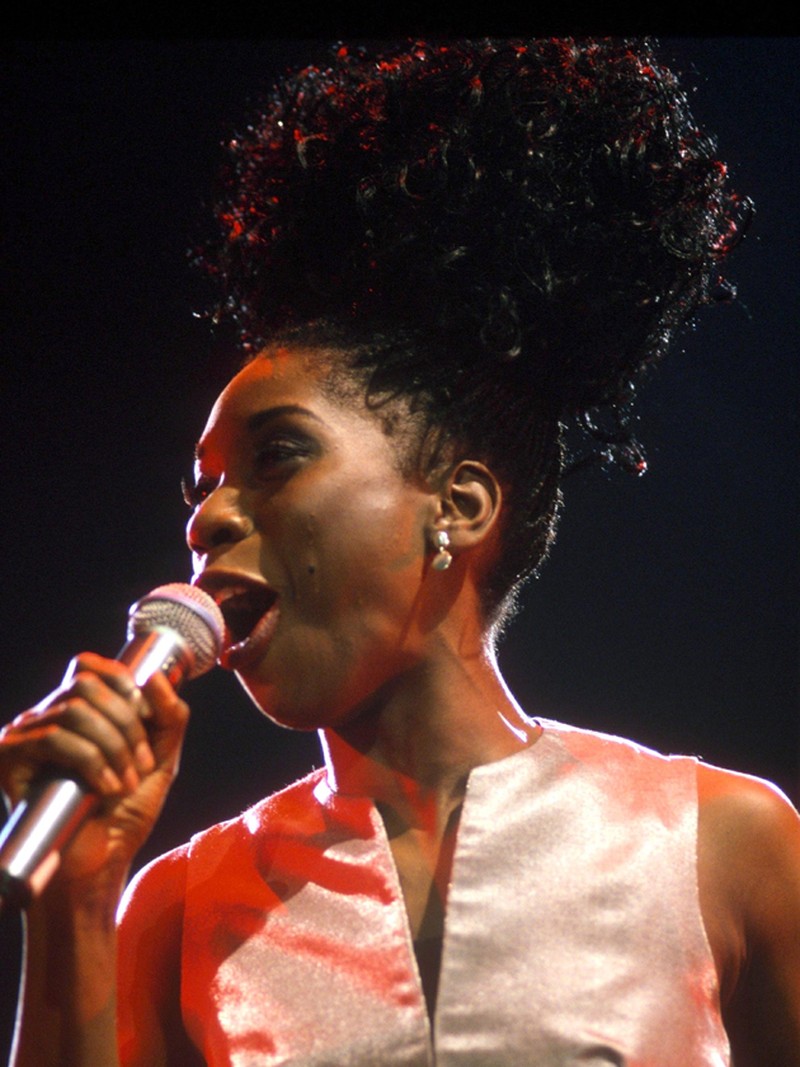
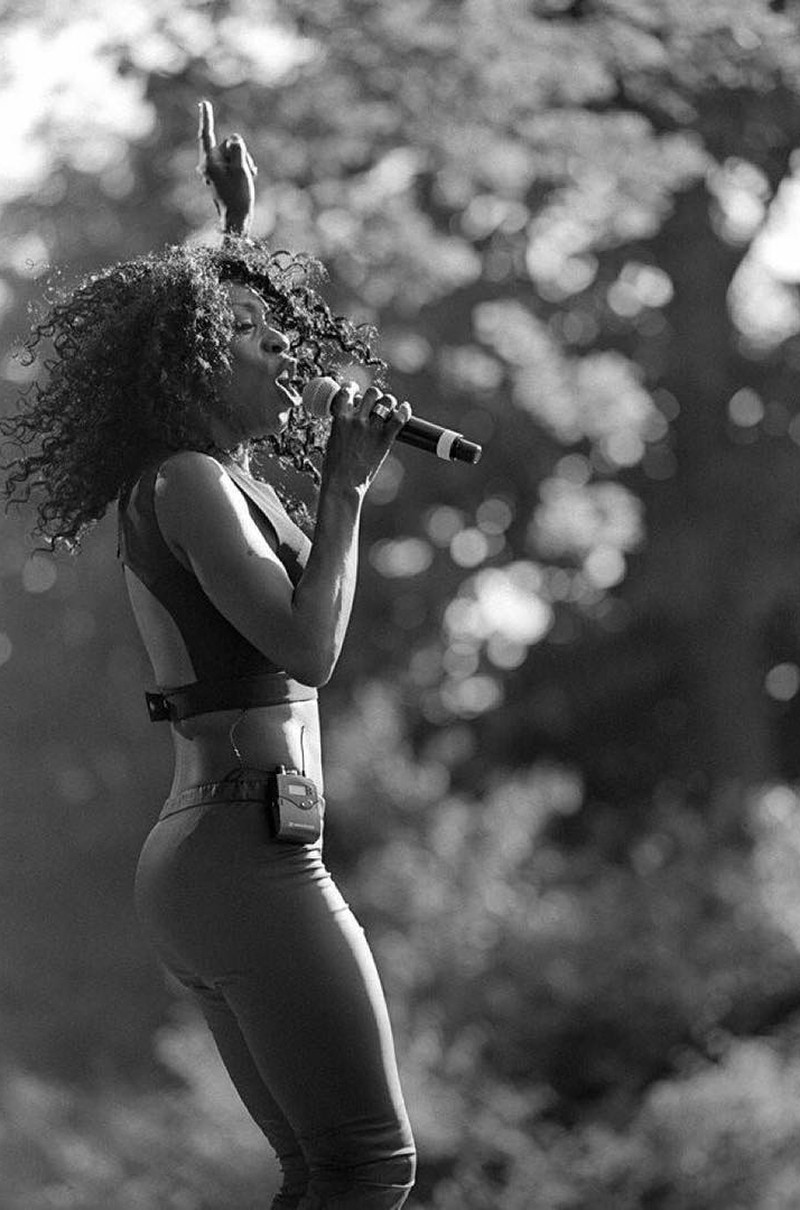
Chapter Five: Becoming A Mum & Recording Perfect Day For Children In Need
“When I had my son, I’ll be honest, there was very little celebration. Being a working mum in the music business back then wasn’t viewed in the way it might be today. Frankly, I had to pretend – in professional settings – that I hadn’t had a child. It’s why I really resonate with artists like Lauryn Hill, who are often very overcome with emotion when they sing very personal songs. It’s very hard to make it as a woman in this world and, back then, you had to deny certain parts of yourself. I have to tell myself now, ‘You’re a good singer Heather. But you’re also a really good mother.’
“That said, one happy memory I do have is recording the Children in Need single in 1997. There were so many big names on that track – Tom Jones, Lou Reed, Gabrielle – and while that was both exciting and a little daunting, I’d just given birth about six weeks before which had given me this incredible confidence. By the time the recording session rolled round, I was ready to sing again. My son also came with me, so the whole experience has such positive associations. I remember going into the booth, singing the whole song top to bottom, looking at the producer and asking, ‘Was that okay?’ He said, ‘Fantastic, actually.’ At that time, I knew the two things – motherhood and singing – could co-exist.”
Chapter Six: Going Solo, Recording ‘Proud’ & Going On Tour
“‘Proud’ is a song that’s all about measuring those inner successes. When I decided to go solo, lots of people questioned my choice. They couldn’t understand why I’d left such a successful band. But for me, there were other things I wanted to do. People knew who I was by this point, and I’d made enough money, so being able to sing was all that mattered. As long as I could do that, I could make time for the more meaningful things, like watching my son do well at school and spending time with my family. Being a mother, an aunt, a daughter – those are the most important titles to me, and if those relationships are all I have, then I’m successful.
“Without my friends and family, there’s no way I could have done the tour I did, and still spend time with my son. My best friend from childhood came with me so I could be secure, knowing I had to go out on stage, but that my son was safe and well and in the care of someone I trusted implicitly. It’s sometimes easy to lose yourself as a new mother, but I was lucky that I had a support system which helped me maintain who I was as a singer too.
“A very surreal moment was when I got the phone call telling me ‘Proud’ was going to become the theme song to The Oprah Winfrey Show. My manager called me when I was on holiday in Bali to tell me Oprah’s people were interested in using it after one of her assistants had heard it in an exercise class in California. It meant a lot to me because Oprah was another Black woman who had made a real success of herself despite humble beginnings and constantly being ‘othered’ in her own country. They invited me to a taping and I was so overcome on set. I could feel the love of the audience – they really rallied behind her as a leader. I always admired her vulnerability as well as her strive for excellence. As Black women in entertainment, the pressure is always on to be the best you can be – and it’s rare to see anyone be vulnerable or show any weakness. But Oprah is so human.”
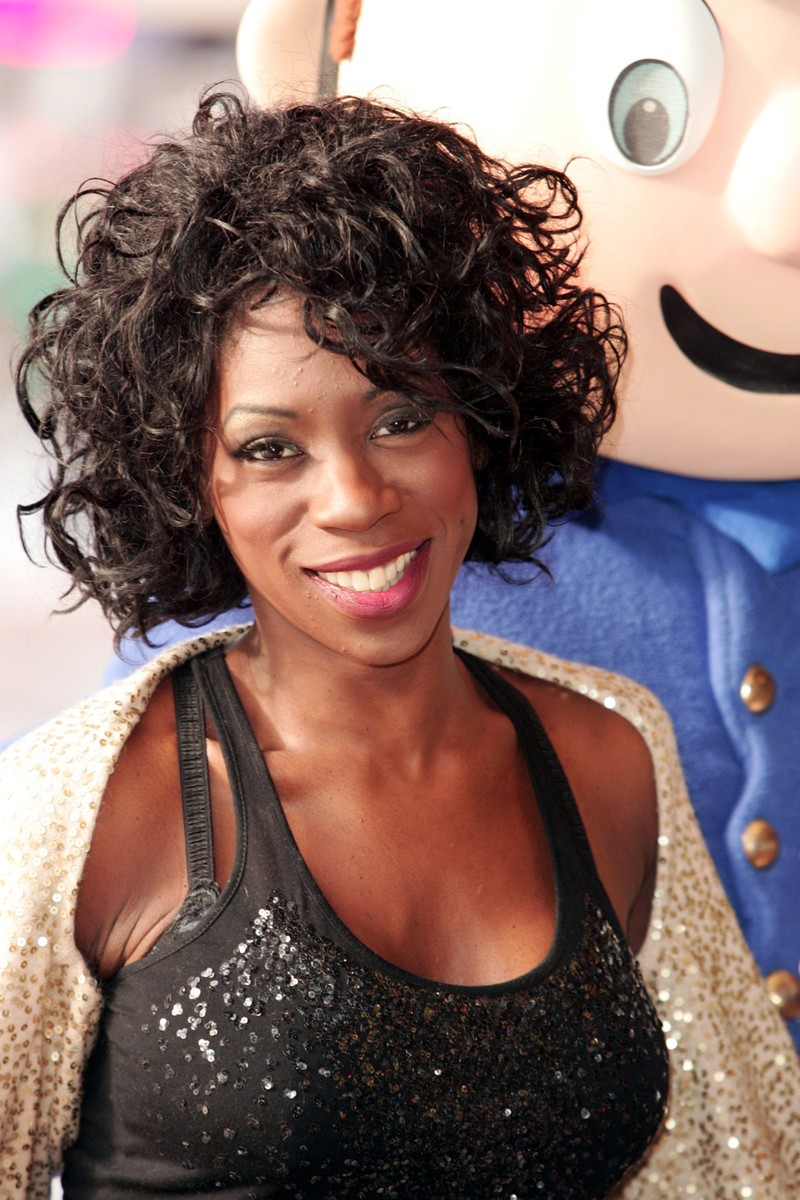
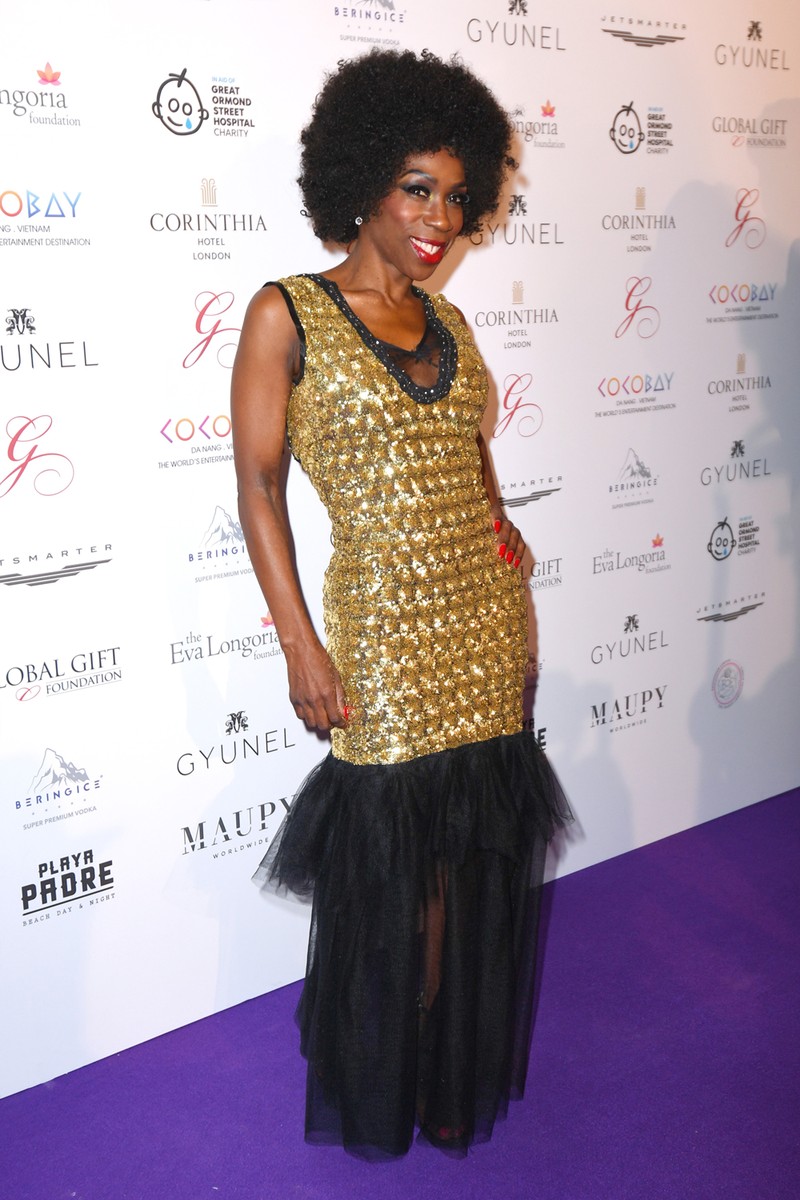
Chapter Seven: Doing Strictly & The London 2012 Olympics
“My second solo album wasn’t as successful – but there was a missive sent behind my back from the record company to other executives in Europe telling them I wasn’t interested in promoting the album. That wasn’t true, I had no knowledge of this, but I think it was because everyone was more interested in having another M People album, rather than a Heather Small album. This was the early 2000s, but I was still being cut out of the narrative at certain points.
“When I got the offer for Strictly, I initially said no. My mother and sister loved the show and my sister – in particular – was devastated I’d turned it down. So I quickly changed my mind. My partner Brian Fortuna and I are friends to this day. Some of the judges were pretty harsh but, at the end of the day, it’s entertainment and I knew it was for fun. A bit like when I did The Masked Singer earlier this year. These are family shows, and I like that they bring people together.
“Having ‘Proud’ used as the theme song for the 2012 Olympics was a good moment. I remember thinking at the time, even if we don’t win that many medals, we’re still a sporting nation and it’ll be a great way to honour our athletes on home turf. There are things that are wrong with Britain but one of our best attributes is our graciousness as a nation. It really shone through – I remember two weeks of glorious sunshine and so many medals. That said, I never got invited to the Opening Ceremony… ‘Proud’ is used a lot, but never without my permission. Sometimes it drives the publishers crazy – especially when there’s decent money on the table! I’ll continue to share it but it’s my baby and I’m protective. I know how unifying it’s been for people and communities over the years.”
The Next Chapter & Charity Work
“During lockdown, I’ve been focusing on my charity work. One organisation I’ve become involved with recently is Action Breaks Silence. It works to raise awareness around gender-based violence – but it’s not just about talking to women, it’s also about talking to men to help them find out more about these issues and offer them the chance to ask questions without judgement. It’s about trying to educate young people as much as possible.
“I’ve also been very involved with the LGBTQ+ community over the years. ‘Proud’ has been used at lots of different Pride marches and I’ve worked with the Terrence Higgins Trust and similar organisations over the years. It’s the sort of work that’s always been a priority and always will be. Right now, I’m also a patron for the LGBTQ+ Film Festival and the Iris Prize, which awards short filmmakers £30,000 to go on and make more important work. It’s a real privilege.
“I’ve also written a sitcom that I’m currently shopping around – I wrote most of it in lockdown – and I’m heading back on tour in 2022. Also, because my sister is bipolar, the two of us have spent a lot of time discussing the mental impact of the pandemic and lockdown. My sister came through it, but we’re exploring ways we can offer support to people who might not have been so fortunate.”
Visit HeatherSmall-MPeople.com for information about the tour and follow @HeatherSmallMPeople on Instagram.
DISCLAIMER: We endeavour to always credit the correct original source of every image we use. If you think a credit may be incorrect, please contact us at info@sheerluxe.com.

